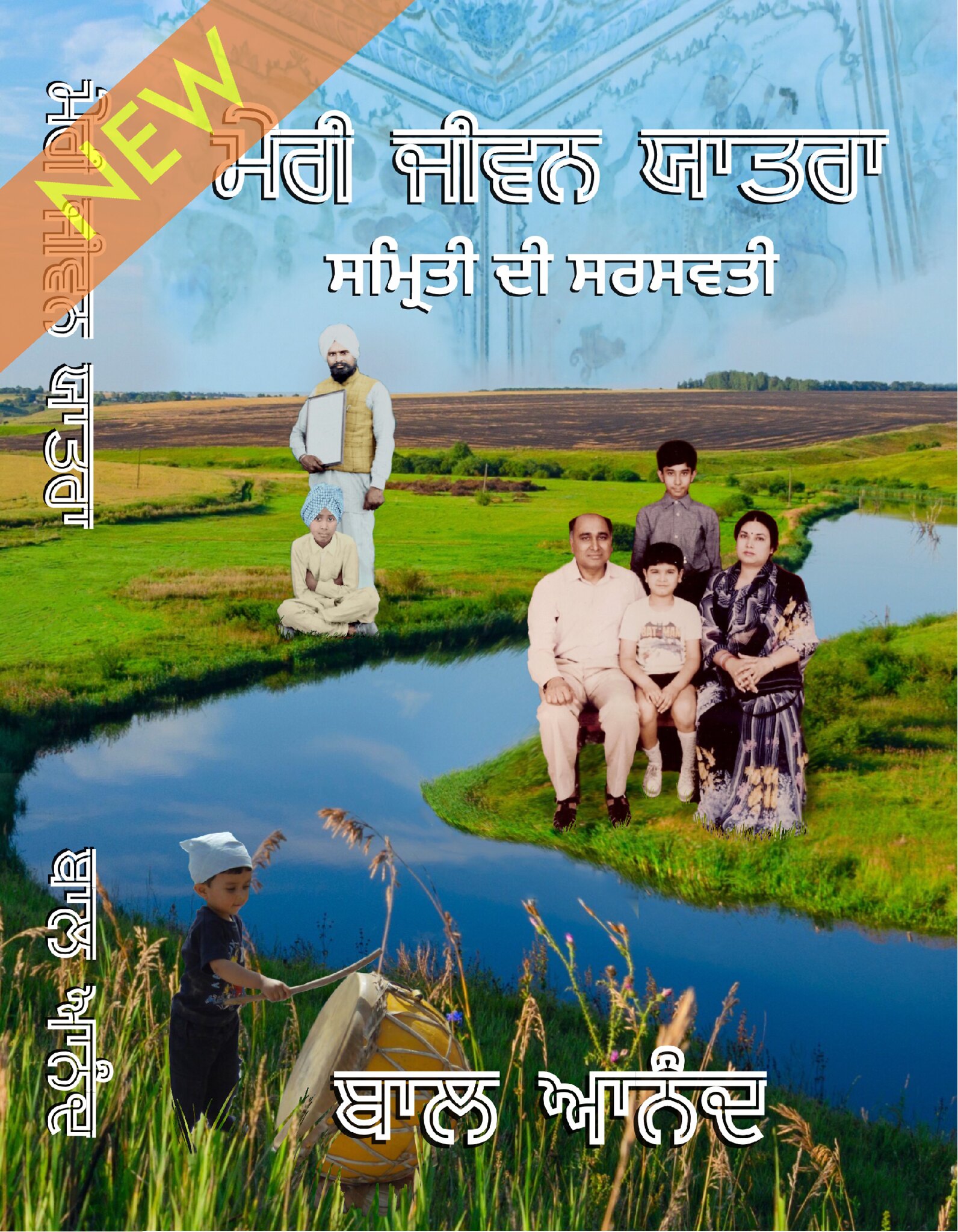On my first looking into Jagrup’s ‘Impressive Poetic-income Statement’ :
My heart with joy dances and hoops At his soul’s wealth and contentment.
It was indeed a rare ‘poetic encounter’ when my friend of about three decades – albeit a maiden meeting - Sardar Jagrup Singh, a very senior officer of the Indian Revenue Service, came to meet me on a pleasant afternoon of Sunday, November 18, 2006 at my ‘nest’ i.e. apartment in Mayur Vihar (literally the colony of the Peacocks) located not far from the legendary Yamuna, presently in the painful process of withering in the jungle of concrete pollutants. We were meeting each other after too brief an encounter in 1978 in the newly established Govt. Degree college, Karamser, situated in the refreshing green environs on the bank of the Sirhind Canal, where Jagrup had speedily emerged a popular youthful lecturer in Physics.
I had expectedly prepared myself to listen from Jagrup many a subtle and funny anecdotes of the tricks played by the ‘money-driven rich and powerful’ in concealing their wealth and dodging taxes by hook or crook – and running into ‘bloodless’ battles of wits with the ‘principled and rule-driven tax collectors’ like Jagrup Singh! Having been a tax-payer ever since I joined my first job as a lecturer on a ‘princely’ salary of Rs. 555/- per month in September 1967, I have developed a somewhat dim view of the life and pastimes of the tax collectors in India whose job is to peep into the ‘dirty-linen’ i.e. the artistically fake and meticulously false account books of the business people. I may state that the bright students of my generation were assiduously tutored by teachers to disdain money and prepare themselves for a career of ‘simple living and high thinking’. The most favoured quote from Gurubani was –
‘Papan Banjh Na Kathi Howe
Moian Saath Na Jawe!’
‘One could never accumulate big money without resorting to sinful ways
every one, however, departs from the world with empty hands’.
I vividly recall how quite a very senior cousin of mine who had done M.A. in English in 1954 and after a short stint as lecturer had joined the Indian Revenue Service, when asked about any continuity of his literary interests had quoted to me (in the summer of 1972) the lines of Mizaz Lakhnavi,
‘jaise mullah ka imama,
jaise Baniye ki kitab’
invoking the simlies of ‘the puffed up turban of the mullah and the worn out account book of the petty trader’ as the most repulsive symbols for the poetic imagination!’ My surprise and dilemma – and profound elation - can be well-imagined when Jagrup Singh presented to me a neat yellowish cover containing - wait, wait, and look : 123 of his poems, in English!
Having been a student of literature and always keen to retain and nourish my deeper interest in the literary endeavours of mankind, I was indeed overwhelmed by ‘the Poetic Income Returns’ presented to me for a ‘friendly scrutiny’ by Jagrup Singh. I must admit that I take any literary effort very seriously and have always believed that there must be a genuinely compulsive and impulsive ‘inner implosion’ of poetry - the words, the thought, the imagination, the rhythm and musical cadence must be magical enough to overpower and captivate the reader. It has been said that, ‘Poetry is the chiseled marble of language; it’s a paint-spattered canvas – but the poet uses words instead of paint, and the canvas is you.’ I have also strongly felt that the authentic poetic experience is possible only in the mother tongue – Rabindranath Tagore had been able to persuade scores of writers to express their creative urges in the language having the sanctity and the purity of the mother’s milk. I was glad to note that Jagrup Singh has indeed sharpened his pen by firstly writing in the mother tongue and later turning to ‘the national tongue of modern India’. I utilized my considerable advantage of firstly reading Jagrup’s poetry in Punjabi and then going through his first collection of poems in English titled ‘Solitude of Mud Palace’. Here, I also feel tempted to quote poet Kamala Das :
Don’t write in English, they said,
English is not your mother-tongue. Why not leave
Me alone, critics, friends, visiting cousins…
…The language I speak
Becomes mine, its distortions, its queernesses,
All mine, mine alone. It is half English, half
Indian, funny perhaps, but it is honest,
It is as human as I am human…
I have indeed enjoyed going through this beautiful of poems penned by Jagrup in his hours of inspiration during the last two years. He has chosen in his poems to comment on injustice, hypocrisy, oppression and indifference prevailing in our society and has also touched upon his personal encounters with nature and people found fit for poetic expression. The poems in the collection, I am confident would shake the sense of inertia and indifference of the readers towards the vital issues confronting us. I wish the tribe of poets like Jagrup to increase – India sorely needs them to put the various issues in their proper poetic, i.e., just perspectives!
* * *



